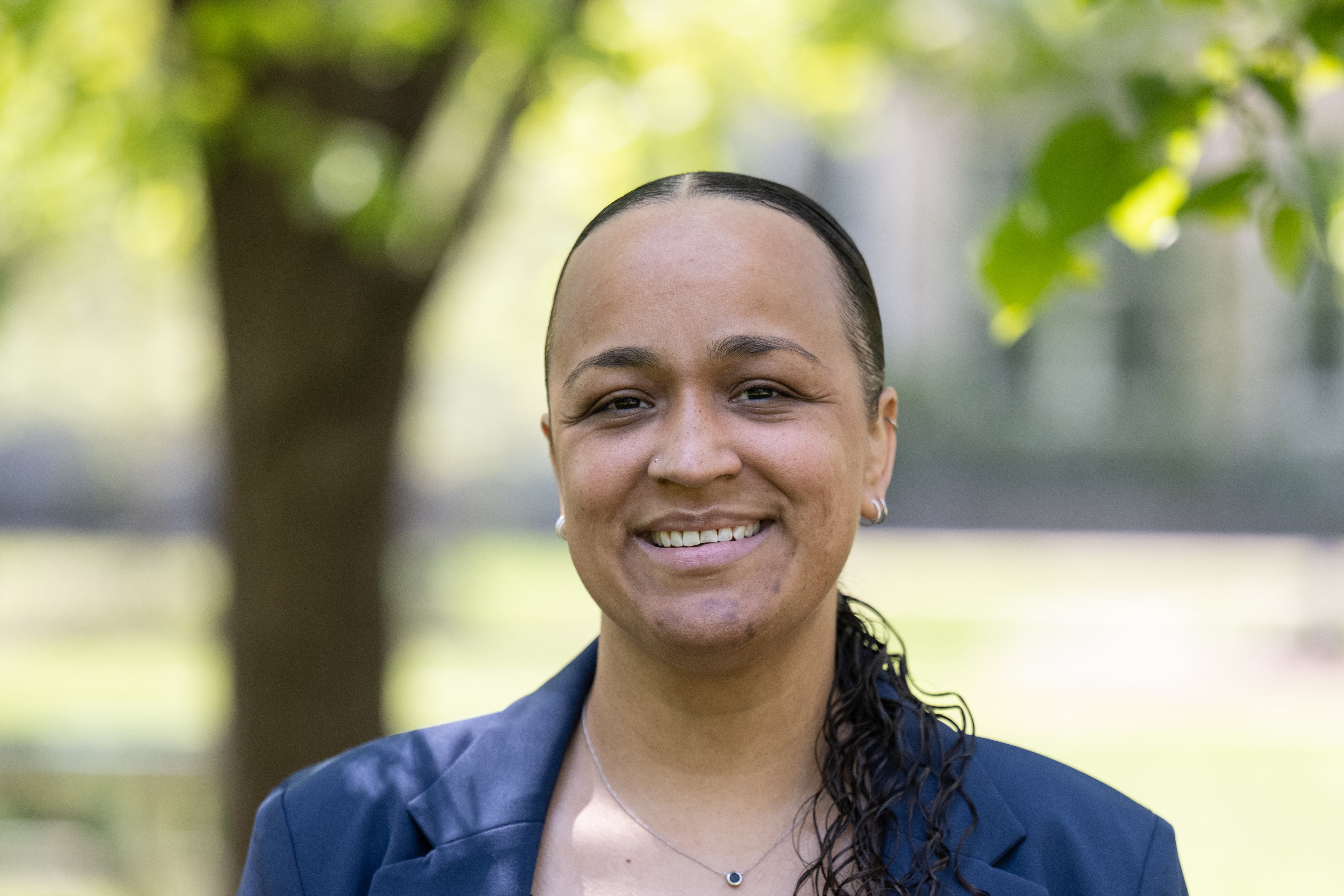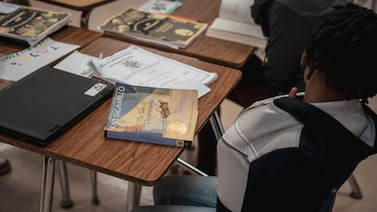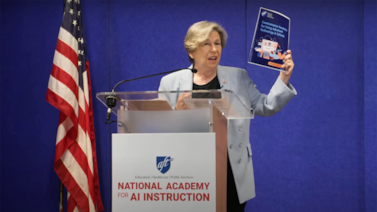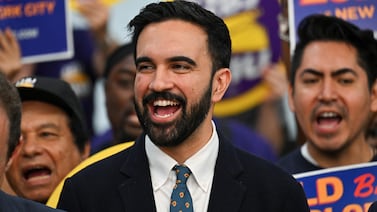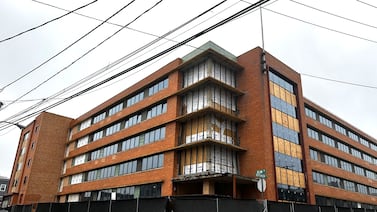Chicago Mayor Brandon Johnson’s deputy for education, youth, and human services Jennifer “Jen” Johnson has a packed agenda for the coming months.
Her first two orders of business since stepping into her new role in May: Boost the number of teens landing jobs through the city’s summer youth employment program. Help spearhead a more collaborative city response to the arrivals of migrant families, connecting some children to summer school and other programs.
But Jen Johnson, the former chief of staff for the Chicago Teachers Union (no relation to the mayor), says she is also eager to dramatically expand the district’s Sustainable Community Schools program, a partnership with the teachers union in which high-poverty schools team up with community-based organizations to beef up services for students and transform campuses into neighborhood hubs.
Expanding these types of schools was a campaign promise of Mayor Johnson’s, himself a former teachers union leader.
And as the district and union tackle negotiations over a new labor contract, Jen Johnson will find herself on the opposite side of the table from where she sat during highly contentious contract talks in 2019 and later over reopening school buildings during the pandemic.
In an exclusive interview with Chalkbeat, Jen Johnson, a former high school history teacher, spoke about the promise and pressure of attacking that high-stakes to-do list.
This conversation has been lightly edited for clarity and length.
What excites you about your new role in the mayor’s office?
I am incredibly honored to have been asked to take this on. My passion comes from working with young people. I’m most excited about those additional levers that I get to push — and the additional collaborators across departments and agencies — to impact the lives of young people. I’m a classroom educator at heart. I always knew I wanted to be a teacher from when I was very young. I come from a family of educators. And I have a deep belief that young people are incredible. Their leadership is something that I’m excited to continue to cultivate.
What keeps you up at night?
It’s just the anxiety of all of the challenges and problems that the city is facing. My portfolio is very wide. I work with eight departments or agencies. The problems that we’re trying to address are systemic. Every day, I’m trying to move the chess pieces in the right direction because the challenges are so deeply impacting families. We need an investment in our schools and in our communities. I am trying to approach the work with a lens of accessibility. The mayor’s Office for People with Disabilities also falls within my office. Every community is touched by the agencies that I’m working with, and every single one has critical work to do. So the anxiety is, “Can we get it done? How quickly? What resources do we need to identify to do so?”
During the election campaign, Mayor Johnson talked about his interest in expanding Chicago’s Sustainable Community Schools model as a way to bring more resources and support to students in high-need schools. How many such schools do you envision, and how can the city scale up this model?
I think the vision and the dream is to work toward a Sustainable Community Schools district. That obviously will take enormous resources. So we are going to have to be sober and honest with our finances. We are going to have to work closely with Chicago Public Schools and ensure Chicago Public Schools is working closely with the Chicago Teachers Union. I’m hopeful that we can get to a phased approach where we are ramping up, but it’s too soon for me to predict an exact number. But the vision is to continue to grow that model where parents, students, community members, staff, and administration are working in partnership to make decisions in a just way that brings resources to students and families and makes schools a community hub. We think that that strategy builds confidence, it builds trust, and it will help school communities with enrollment ultimately.
Speaking of Sustainable Community Schools, Miguel del Valle, who is stepping down as school board president, recently called for evaluating and holding more accountable the district’s community partners in the Sustainable Community Schools program. Do you see a need for that as well?
Look, we live in a world where people expect and deserve data. They expect and deserve transparency in what is happening in their school communities. So I’m fully in favor of ensuring that students, families, educators, and the community understand what resources, programs, and supports are being put into schools, including the Sustainable Community Schools. I don’t think it’s fair to single out just Sustainable Community Schools. We have to be more transparent with how we’re talking about what investments are going into schools wholesale because that will help us tell the story of where more investment is needed. What I’m not in favor of is continuing to have to justify providing programs, resources, staffing, and services that all of our students deserve. Our young people deserve a librarian. Our young people deserve an after-school program. Our young people deserve a health clinic in their school. I’m not interested in revisiting the 25-year history of research on whether community schools work, but research is very clear that this model is the way we should do school.
Why were youth jobs one of the first orders of business when Mayor Johnson took office last month? How will this administration achieve his goal of doubling them?
The mayor is a parent. He has three active children, and he and his family ensure that they are engaged in high-quality programs that keep them busy and happy. The mayor understands that not all young people have access to programs and jobs that do the same for them. He knows that young people who have opportunities to have paid work will be occupied and have fun; they will learn skills that will transfer back into the school and hopefully will transfer into interest that drives them forward with their future plans. He understands that it’s an important lever on curbing young people from engaging in behavior that is destructive.
We have been working very quickly and closely with the Department of Family & Support Services, with our budget department, with our sister agencies and departments. One Summer Chicago is a critical program. We think that it can do more. So all of those partners are working together right now to increase the number of students who are placed in slots. We also have corporate partners working with our departments to identify opportunities for young people to work. So this is really an all-hands-on-deck moment. We do expect to see a bump this summer, and then we’re going to be working really hard to maintain and continue that increase.
Chicago Public Schools is going into contract negotiations with the Chicago Teachers Union. How will the Johnson administration ensure the two sides arrive at a contract that meets the needs of educators, students — and taxpayers?
The mayor has been clear that he is an educator, so he knows how critical investing in our Chicago Public Schools is. He is also a parent, and he is the mayor for the entire city. So we’re going to balance all of the priorities we have to balance, in terms of investment and fiscal responsibility, but we’re going to do it in a collaborative manner. We will be able to have more honest, upfront conversations with the union and with the district about the needs and about the barriers. And with Mayor Johnson in office, he has excellent relations across all levels of government. So I am hopeful that the process will be less painful, more inclusive, and driven by a shared set of goals.
How will the school district and the city step up services for newly arrived migrant students?
The issue of supporting our asylum-seekers is one that cuts across many departments in this city. I have continued to support making sure that young people who are part of our migrant families are connected to their school communities as soon as possible. There are young people who have been connected with summer programming this summer. But the solutions don’t just live in one department. There is increased, deeper collaboration across the schools, the Department of Family & Support Services, the mayor’s office, and myriad others. There’s a lot of evaluation going on of what’s working right now. I also expect we are going to bring on a new deputy mayor who will be fully focused on this issue.
Typically, newly elected mayors have replaced appointed members of the Chicago Board of Education. Four of seven members’ terms are expiring this month. Do you have any updates about Mayor Johnson’s school board appointments?
We’re working on it, and you’ll know as soon as we’re ready to share.
Mila Koumpilova is Chalkbeat Chicago’s senior reporter covering Chicago Public Schools. Contact Mila at mkoumpilova@chalkbeat.org.

